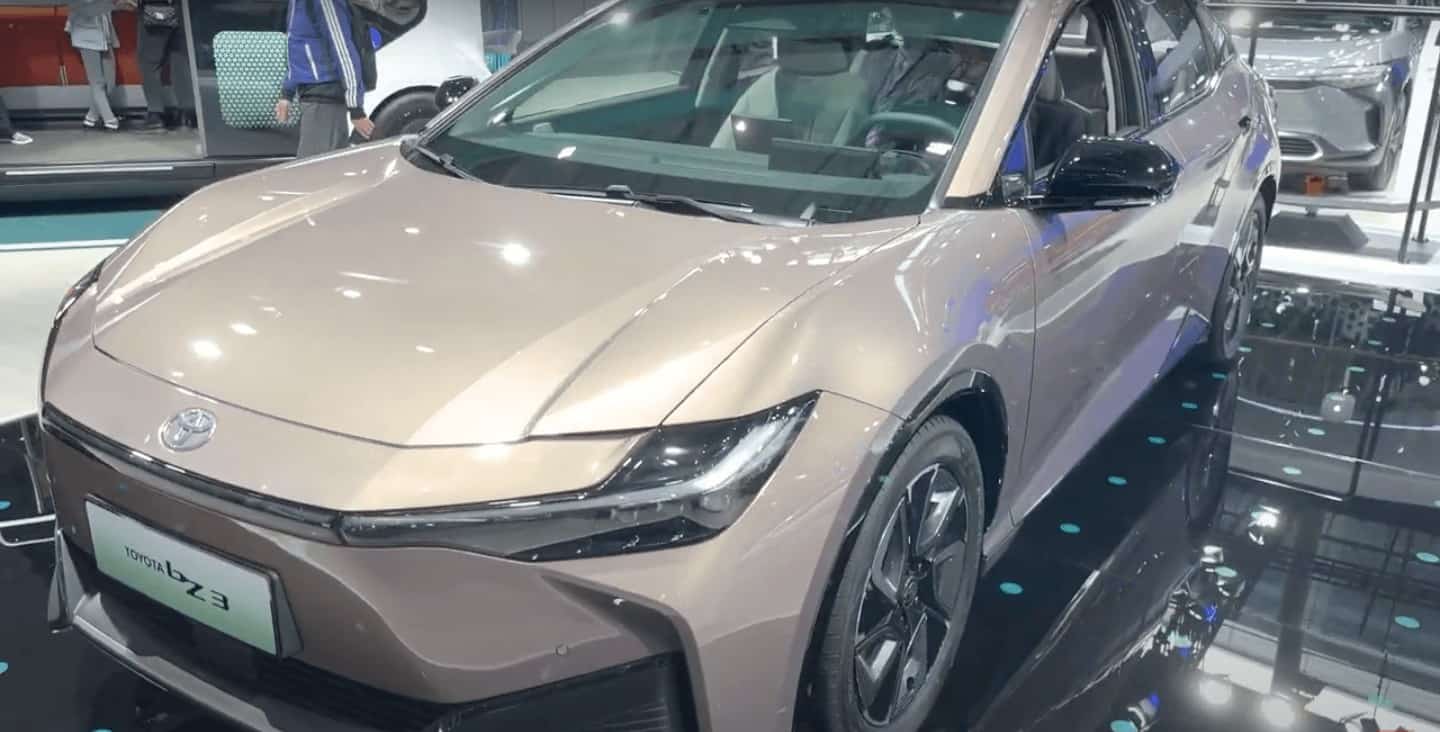Legacy automaker Toyota projects an annual operating profit increase of 10% to $22 billion (¥3tn) in China as the semiconductor chip crisis eases, per the press release.
“We expect an increase in sales volume in all regions and production volume of 10.1 million (vehicles), due to such factors as … improvement in semiconductor supply and efforts of production sites.”
Toyota
Toyota, through its new chief executive, has now announced plans to boost its electric vehicle initiatives in the world’s largest automaker, Financial Times reports.
The newly appointed CEO, Koji Sato, will lead the automaker in an industry progressively transitioning to EVs. Sato will also steer clear of geopolitical challenges brought on by the US-China conflict.
Toyota targets 11.4 million unit sales by early 2024
Toyota Motor Corporation, along with its subsidiaries Daihatsu and Isuzu, announced Wednesday targets to sell a record 11.4 million units for this financial year to March 2024. It represents a notable increase from 2022’s record of 10.6 million units.
In addition, Toyota (including Lexus) forecasted an annual global BEV sales growth to 202,000 units from just 38,000 units in 2022, as it focuses on its limited line-up compared to competitors.
In the first quarter of the year, Toyota’s operating profit recorded a year-on-year growth of 35% to ¥626.9 billion. Meanwhile, its revenue enjoyed a YoY increase of 19% to ¥9.7 trillion.
Following the announcement of a potential $150 billion buyback program, the Japanese automaker’s stock price increased by 2.5% on Wednesday.
Toyota to “aggressively roll out BEVs”
Toyota CFO Yoichi Miyazaki disclosed during a news conference that the automaker is now on track to build a record-breaking number of EVs after taking several initiatives to overcome the semiconductor parts shortage.
“About a year ago, we had no visibility on which chips would run short at which timing. Our efforts are not complete, but our ability to manage chip supplies has significantly improved.”
Toyota CFO Yoichi Miyazaki
To be fair, officials recognized Toyota’s difficulties in the Chinese market then, the report stated.
Japanese automakers have experienced the biggest sales decline among international brands in China in the past few months due to their sluggish rollout of BEV. In fact, Toyota’s vehicle sales decreased for the first time in ten years in 2022 in China, where it has a roughly 9% market share.
“The shift to battery electric vehicles [BEVs] in China is fast so we will aggressively roll out BEVs.
At the same time, it is true that there is steady demand for hybrid vehicles as well . . . so we will work on both fronts.”
Toyota CEO Koji Sato
According to CLSA analyst Christopher Richter, Toyota’s outlook was modest but nevertheless provided Sato with a strong foundation. It also aligns with market expectations.
“Outperformance of these numbers will further strengthen his hand. I was also glad to see that the executives were awed by what they saw at the Shanghai Motor Show, and have a keener appreciation for the competition. They need it.”
CLSA analyst Christopher Richter
According to the report, three European asset managers claimed to have presented a shareholder proposal on May 10. They reportedly call for greater transparency about Toyota’s lobbying activities connected to climate change.
Toyota has recently been under fire from the $20 billion Danish fund AkademikerPension and other European funds for refusing to invest “all in” on electric vehicles.
See Also:
- Toyota hydrogen fuel cell electric powertrain secures CARB approval
- Toyota bZ3 with BYD technology formally launched in China
- Toyota seeks wireless charging tech with new partners
- Toyota’s new CEO continues to favor hydrogen over BEVs
- Toyota launches six electric cars as it shifts focus from hydrogen
As we all know, Toyota has long contended that if energy is obtained from fossil fuels, a sudden switch to electric cars could lead to environmental pollution. It believes hybrid vehicles like the Prius will offer a more sustainable alternative throughout the transition. Board members of the company encouraged shareholders to reject the shareholder proposal.

